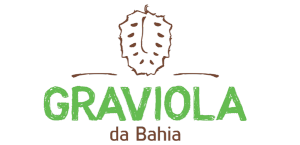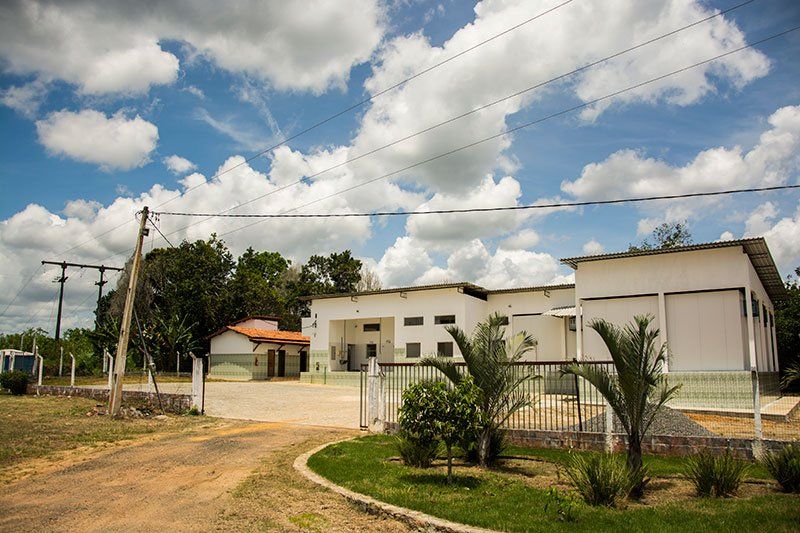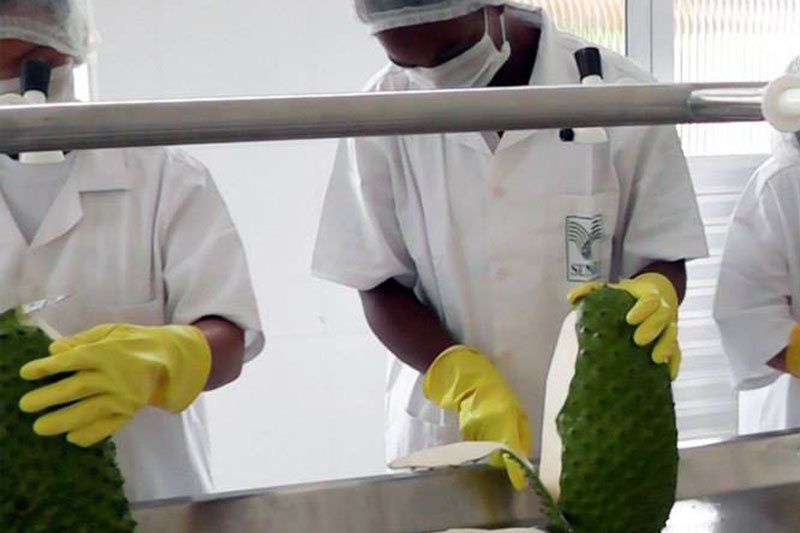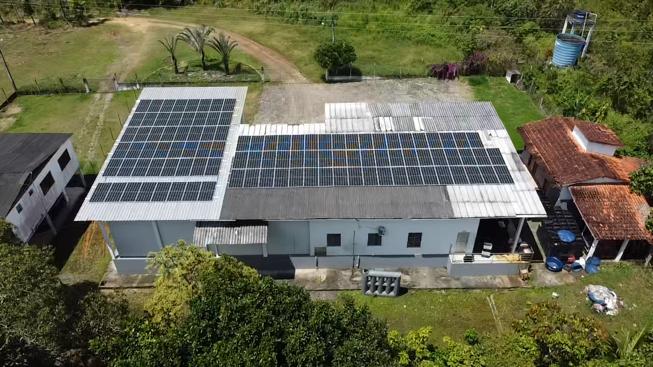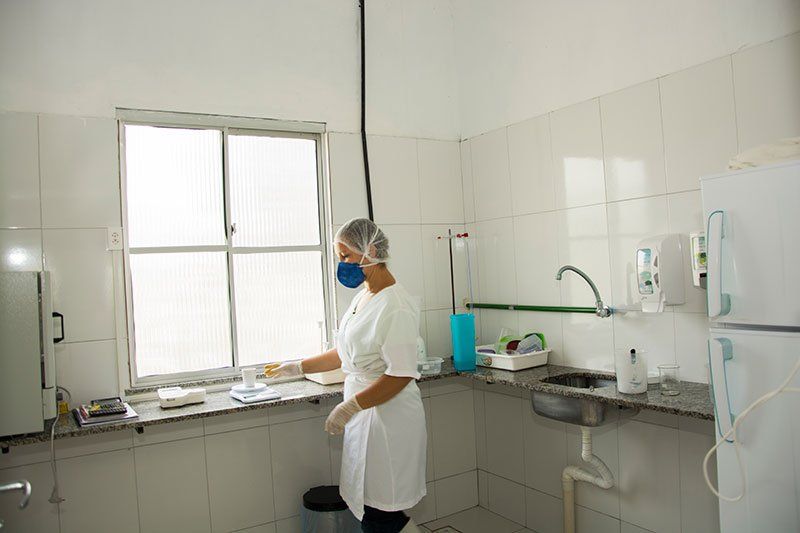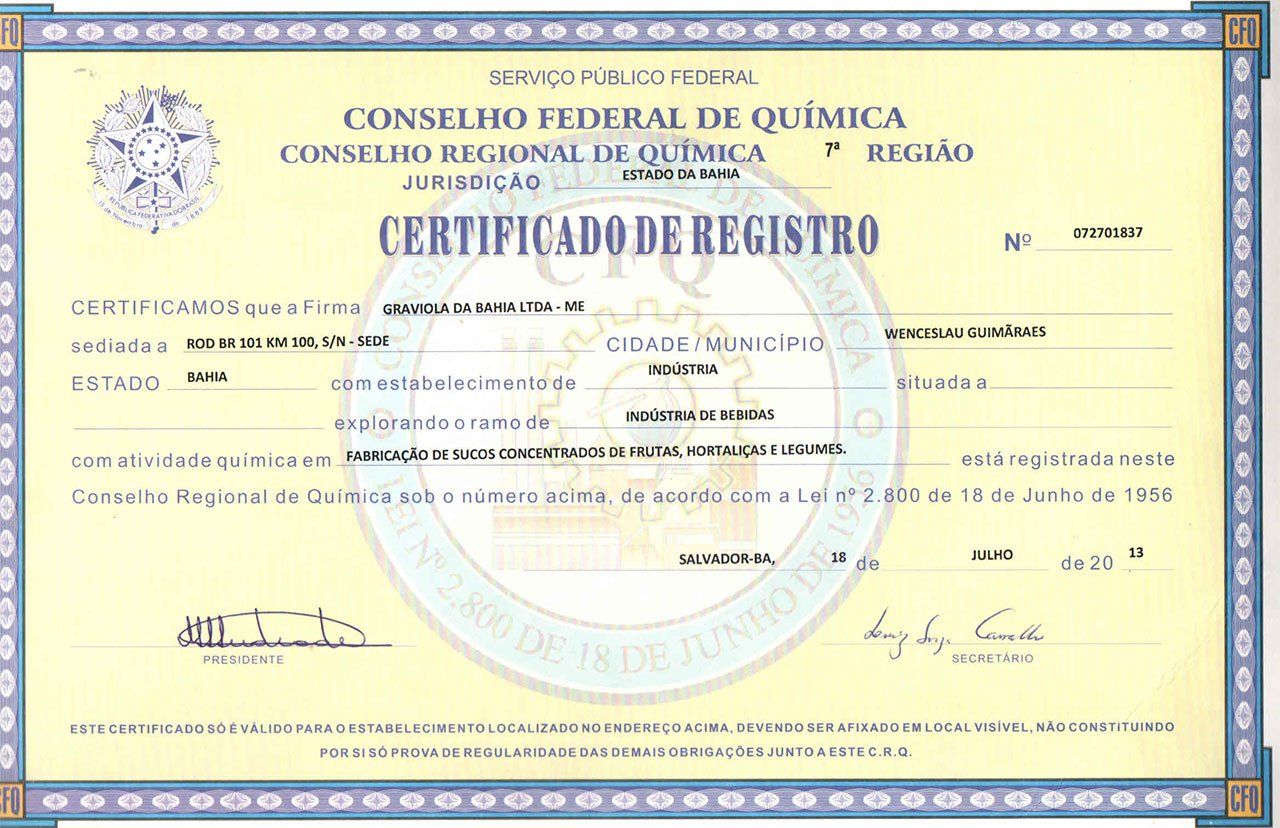About Graviola
Southern Bahia - Brazil
🌿 What is soursop?
Soursop is the fruit of the Annona muricata tree, native to the tropical regions of the Americas. With a striking appearance, it has a green skin with soft spines and white, juicy and aromatic pulp, with a sweet flavor and slight acidity. It is consumed raw or used to prepare juices, ice cream, sweets and other derivatives, such as teas and capsules. In addition to the fruit, the leaves and seeds of the plant are also used in different traditional uses.
🌿 Health benefits of soursop
In terms of health, soursop is rich in vitamin C, B vitamins, potassium, magnesium and fiber, offering antioxidant action, strengthening the immune system and aiding digestion. It is also used in folk medicine as a natural sedative and anti-inflammatory. Some research investigates compounds present in the plant with anticancer potential, but there is still a lack of conclusive studies that safely prove these effects. Therefore, the consumption of extracts or supplements should be done under professional guidance. Check out 10 Benefits of Soursop in this article.
🌿 When is the harvest season and where is our Graviola grown?
The soursop harvest season in Bahia varies, but production is most intense between the months of June and August. However, production can be spread throughout the year, and in well-managed orchards in southern Bahia, there can be production in all months of the year.
We are located in Wenceslau Guimarães, in the Baixo Sul region of Bahia, one of the main soursop production centers in Brazil.
In the field, the size of the fruits in our region is also impressive, as they easily reach 8 or 10 kg each, while in other regions the average weight of the fruit is around 3 kg.
Soursop is the third most important crop in the southern region of Bahia, behind cocoa and banana, and has become the world capital of soursop cultivation, surpassing traditional producers in Brazil and abroad, such as Ceará, Colombia and Venezuela, according to ADAB and Seagri-BA.
🏭 How is soursop pulp produced?
Soursop pulp is produced by extracting the edible part of the fruit, following a careful process to ensure quality, hygiene and preservation of the nutrients and natural flavor of the soursop. See the general step-by-step production process:
Stages of soursop pulp production:
- Fruit selection: Ripe, clean and well-preserved soursops are chosen. Unripe or overripe fruits are discarded.
- Hygiene: The fruits are washed carefully with drinking water and, in industrial processes, they can go through a sanitizing solution to eliminate microorganisms.
- Peeling and seed removal: The thorny skin and black seeds are removed manually or with specific equipment, preserving the white, juicy pulp.
- Pulp extraction: The edible part is mechanically disintegrated (crushed or beaten) to form a homogeneous pulp. In some cases, light sieving is done to adjust the texture.
- Packaging and storage: The pulp is packaged in plastic bags or jars, usually in portions of 100g, 500g or 1kg. For storage, it is immediately frozen and kept at a controlled temperature until consumption.
This process can be done in an artisanal or industrial way, with variations in scale and equipment used, but always with a focus on quality, hygiene and food safety. Frozen pulp preserves its flavor and nutrients well, making it ideal for juices, desserts and natural recipes.
🏭 Applications of soursop in industry
Soursop pulp from Bahia is versatile and can be used in a variety of applications in the food industry:
- Food Segment: Soursop is highly valued for its soft pulp, distinctive aroma and sweet flavor with a slight acidity. Industrially, it is used in juices, nectars, ice creams, popsicles, jellies and desserts. The frozen pulp, one of our specialties, is ideal for export, ensuring easy transportation and preservation. In addition, the fruit's natural aroma is used as a flavoring in various food products.
- Pharmaceutical and Phytotherapeutic Segment: Graviola is widely studied for its bioactive properties. Fruits, leaves and seeds contain compounds such as acetogenins, associated with antioxidant, anti-inflammatory, antimicrobial and possible anticancer effects. We serve companies that produce teas, capsules and natural supplements, focusing on the responsible and sustainable use of this raw material. We emphasize the importance of guided use, due to possible adverse effects in high doses.
- Cosmetics Segment: With the growing demand for natural products, soursop stands out in the cosmetics sector. Our extracts can be applied to creams, soaps, shampoos and exfoliants, taking advantage of the plant's antioxidant properties and its tropical aroma. Soursop adds functional and sensory value to formulations aimed at consumers seeking sustainable and less synthetic alternatives.
- Agroindustrial Segment: Soursop also generates byproducts with potential in the agroindustry. Seeds can be used to extract oil for application as a natural pesticide, while leaves and bark are used to produce bioactive extracts for organic farming or pharmaceutical inputs. Our commitment to the full use of the plant contributes to more sustainable production practices.
📊 Characteristics of Soursop
The southern region of Bahia is a world leader in soursop production. The perfect climate for the species and increasing technical development allow the development of fruits with high brix content and balanced pH for the production of pulp, juice, ice cream and yogurt.
These characteristics are essential for the formulation and quality control of food products that use soursop as an ingredient.
✅ International Certifications and Compliance
Graviola da Bahia has certifications that attest to the quality and safety of its products:
- MAPA (Ministry of Agriculture, Livestock and Supply): Registration of products and processes, ensuring compliance with Brazilian standards.
- Health Surveillance: Health permit that ensures good manufacturing practices and food safety.
- Regional Chemistry Council (CRQ): Certification that validates the chemical processes and analyses carried out by the company.
🌱 Commitment to Sustainability
The company adopts sustainable practices in its operations:
- Use of Solar Energy: Photovoltaic system with 104 modules, generating a monthly average of 5,200 kWh.
- Waste Management: Composting of organic waste and effluent treatment.
- Ecological Construction: Installations with recycled tiles and use of rainwater.
🌍 National and International Market
Graviola da Bahia supplies soursop pulp in various formats and volumes, serving industries in Brazil and abroad. Our main markets include countries such as Canada, Germany, the Netherlands and France, with particular emphasis on European recognition — especially in Germany — of the medicinal properties of soursop, both its fruits and its leaves.
🌍 How to buy soursop pulp wholesale? (Available Formats and Packaging)
- 180 kg drums
- 20 kg bars
- 1,000-liter IBC containers
Graviola da Bahia is the ideal partner for industries seeking quality, innovation and sustainability in the use of natural ingredients with high added value. Whether in the food, pharmaceutical, cosmetic or agro-industrial sectors, we offer reliable solutions for an increasingly conscious and demanding market.
Frequently Asked Questions about Graviola
Hello! Do you have any questions about our company? Contact us!
TAGLINE
What do they say about Graviola?
Bahia leads the world in soursop production. Bahia has become the world capital of soursop cultivation, surpassing traditional producers in Brazil and abroad, such as Ceará, Colombia and Venezuela, according to ADAB and Seagri-BA.
Family farmers produce 90% of the soursop in Bahia and it is emerging as a strong generator of income for family farmers who, encouraged by the Bahian Agricultural Development Company (EBDA), linked to the Secretariat of Agriculture, Irrigation and Agrarian Reform (Seagri), have been investing in this crop.
Soursop for Industry
Graviola da Bahia is a company specialized in supplying 100% pure soursop pulp, without additives or preservatives, for the food industry in Brazil and abroad. Located in Wenceslau Guimarães, in the Baixo Sul region of Bahia, the company stands out for the quality of its products and its commitment to sustainability and social responsibility. Our product is pure, without the addition of water or preservatives. We offer soursop “dough”, consisting of the whole fruit, frozen only without the skin and stems, and also the pure pulp, free of pulp and ready for industrial use.
